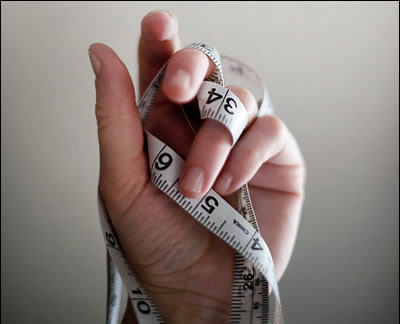Common Weight Loss Mistakes

Losing weight can sometimes seem very hard. Sometimes you feel like you're doing everything right, yet still not getting results. You may actually be hindering your progress by following the wrong advice. Here are some common mistakes people make when trying to lose weight.
Only Focusing on the Scale Weight
It's very common to feel like you're not losing weight fast enough, despite faithfully sticking to your diet. However, the number on the scale is only one measure of weight change. Weight is influenced by several things, including fluid fluctuations and how much food remains in your system. In fact, weight can fluctuate by up to 1.8 kg over the course of a day, depending on how much food and liquid you've consumed.
For women, increased estrogen levels and other hormonal changes can lead to greater water retention, which is reflected in scale weight. If the number on the scale isn't moving, you may very well be losing fat mass but holding on to water. Fortunately, you can do several things to lose water weight.
When this happens, your clothes may start to feel looser - especially around the waist - despite a stable scale weight.
Another key factor is that you can tone up muscle at the same time as you are losing fat, and not see much movement in kgs. That is because muscle weighs more than fat. Having more lean muscle also burns more calories.
Measuring your waist with a tape measure and taking regular pictures of yourself can reveal you're actually losing fat, even if the scale number doesn't change much.
Not Eating Enough Protein
Getting enough protein is extremely important if you're trying to lose weight. In fact, protein has been shown to help with weight loss in several ways.
It can reduce appetite, increase feelings of fullness, decrease calorie intake, increase metabolic rate and protect muscle mass during weight loss.
To optimize weight loss, make sure each of your meals contains a high-protein food.
Not Eating Enough Fibre
A low-fibre diet may be slowing down your weight loss efforts. Studies show a type of soluble fibre known as viscous fibre helps reduce appetite by forming a gel that holds water. This gel moves slowly through your digestive tract, making you feel full.
Research suggests all types of fibre benefit weight loss. However, a review of several studies found viscous fibre reduced appetite and calorie intake much more than other types. When total fibre intake is high, some of the calories from foods in mixed meals aren't absorbed. Researchers estimate that doubling daily fibre intake could result in up to 130 fewer calories being absorbed.
Having Unrealistic Expectations
Having weight loss and other health-related goals can help keep you motivated. However, having unrealistic expectations can actually work against you.
Researchers analyzed data from several weight loss programmes. They reported that the overweight and obese women who expected to lose the most weight were the most likely to drop out of a programme after 6 to 12 months.
Make sure your weight loss expectations are realistic. This can help prevent you from getting discouraged and improve your chances for success.
Still Drinking Sugar
Many people cut soft drinks and other sweetened beverages out of their diet to lose weight, which is a good thing. However, drinking fruit juice instead isn't smart. Even 100% fruit juice is loaded with sugar and may lead to health and weight problems similar to those caused by sugar-sweetened beverages.
What's more, liquid calories don't seem to affect the appetite centers in your brain the same way calories from solid foods do. Studies show that you end up consuming more calories overall, instead of compensating for the liquid calories by eating less later in the day.

